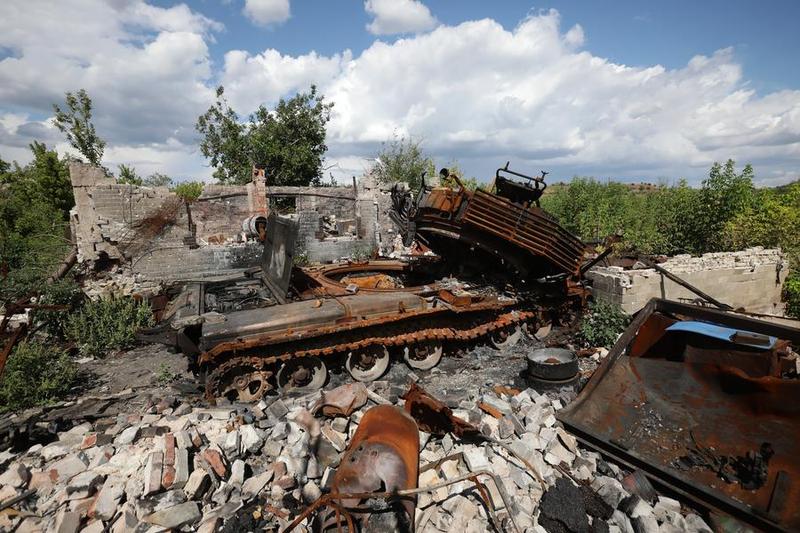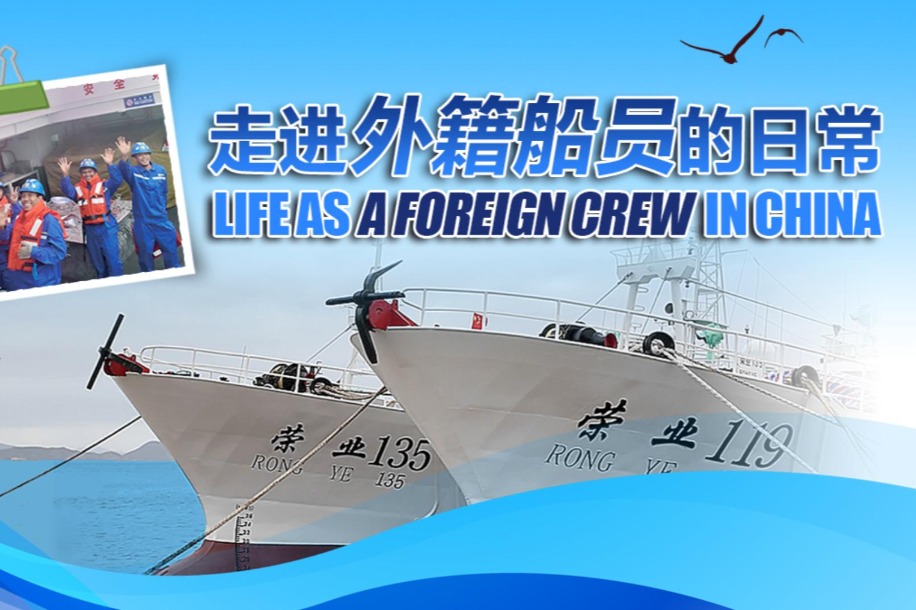European security framework core of Ukraine crisis


As the three-day truce Russia proposed concluded on Sunday, Ukrainian President Volodymyr Zelensky on Saturday put forward a "full and unconditional" 30-day ceasefire plan starting on Monday, and said that his country is prepared to resume direct negotiations with Russia if Moscow accepts the ceasefire proposal.
Earlier on Sunday, Russian President Vladimir Putin proposed resuming direct negotiations with Ukraine on Thursday in Istanbul, indicating a ceasefire agreement could be discussed during the proposed negotiations.
Kyiv made the proposal after a meeting between Zelensky and visiting leaders from France, Germany, Poland and the United Kingdom on Saturday. The European leaders said that if Moscow does not agree with the 30-day ceasefire proposal, Russia's financial and energy sectors will face new large-scale sanctions. Something the White House hinted it has given the nod to.
The 30-day ceasefire agreement was first proposed by US President Donald Trump. And the core content of the "ultimatum" that European countries put forward this time is consistent with Trump's "30-day ceasefire" requirement. In this way, the European leaders have tried to drag the United States to their side. They don't worry about Moscow's rejection as that will actually help them to realize the objective of driving a wedge between Moscow and Washington.
But Putin's response indicates he has chosen to brush aside the European leaders' threat, avoiding a direct confrontation with Europe, while keeping the door open for talks to woo the US sticking to its original practice of keeping Europe away from the negotiation table, since there is no reason for the US leader not to support direct negotiations between Russia and Ukraine.
Putin's move distracted the attention attracted by Europe's "ultimatum" and he focused part of the public opinion war on the Istanbul negotiation initiative. In response, Trump posted a positive evaluation on social media of Putin's initiative on Sunday.
In the past three months, the US' pressure has been mainly directed at Ukraine, and it has generally achieved its goal. Ukraine has signed a mineral agreement with the US and accepted Russia's core demand of not joining North Atlantic Treaty Organization, which the US had asked Kyiv to accept. Even on the issue of territory, the Zelensky government has shown flexibility, although it has clearly stated that it refuses to formally cede territory.
But none of the "breakthroughs" has actually touched upon the core issue of the crisis as they mainly serve the US' interest.
China advocates for and remains committed to the vision of common, comprehensive, cooperative and sustainable security at the global level, and believes it is important to take seriously the legitimate security concerns of all countries and eliminate the root causes of the Ukraine crisis.
China welcomes all efforts conducive to peace and looks forward to reaching a fair, lasting and binding peace agreement on the Ukraine crisis that is accepted by all relevant parties through dialogue.
The resolution of the crisis should not become a process for certain parties to exploit others for their own narrow interests. Otherwise, the peace that will be achieved will not only be short-lived but also become the launchpad for a new crisis in the future. If so, that means Europe will continually suffer from the lack of a lasting and effective peace mechanism paying a high price for the illusion that peace has returned.
Although the positions of the relevant parties are not fully aligned, they all hope to have a fair and durable peace deal that is binding and accepted by all the parties concerned. They also need to realize that no one wins in a conflict, but everyone gains in peace. The negotiation table is where the conflict ends and peace starts.
Although peace might bring about multiple wins, to end the conflict entails relevant parties making compromises.

































